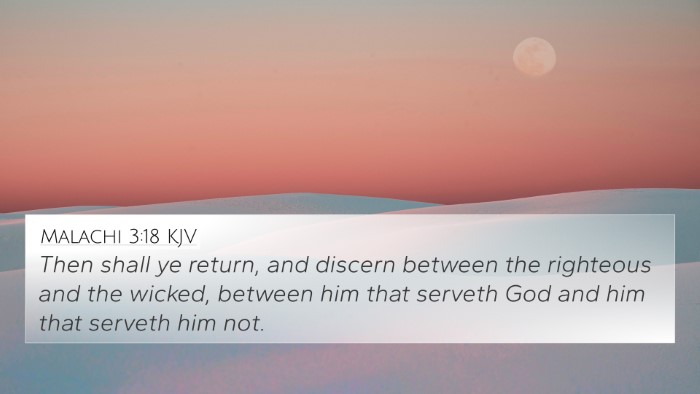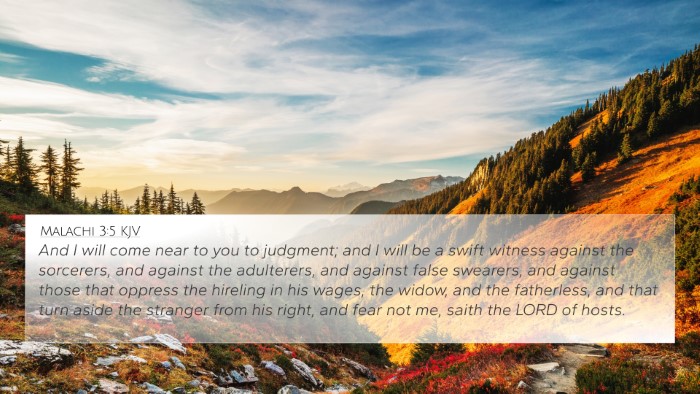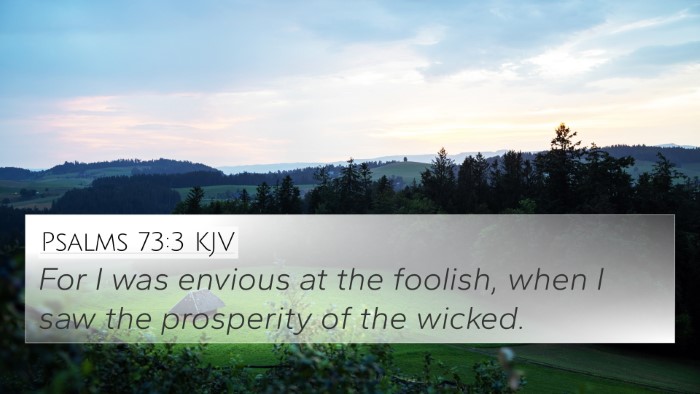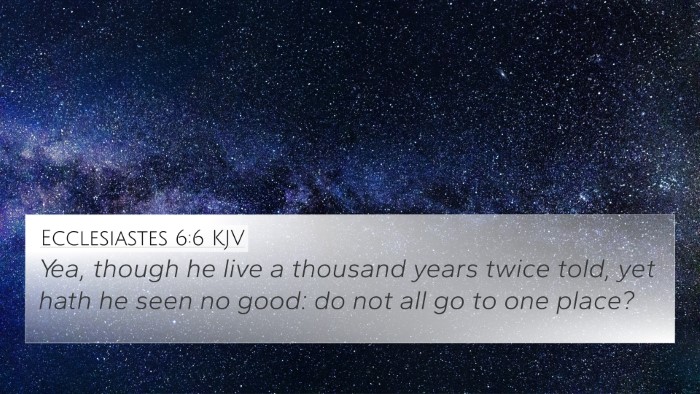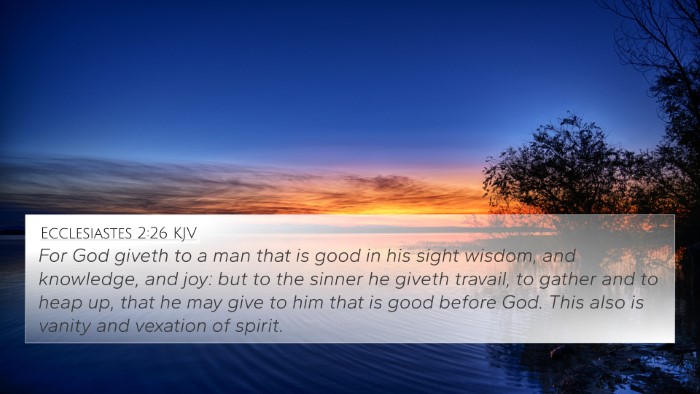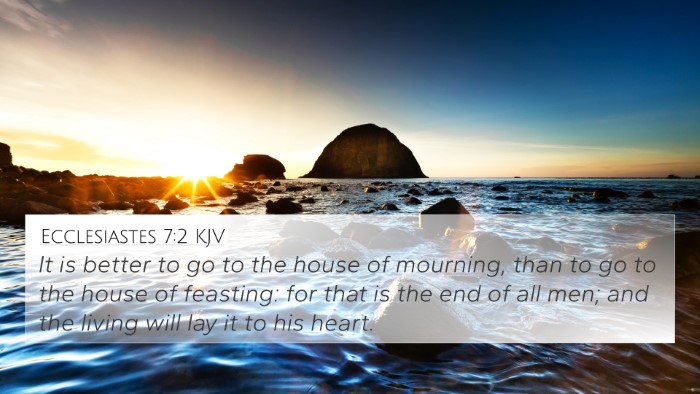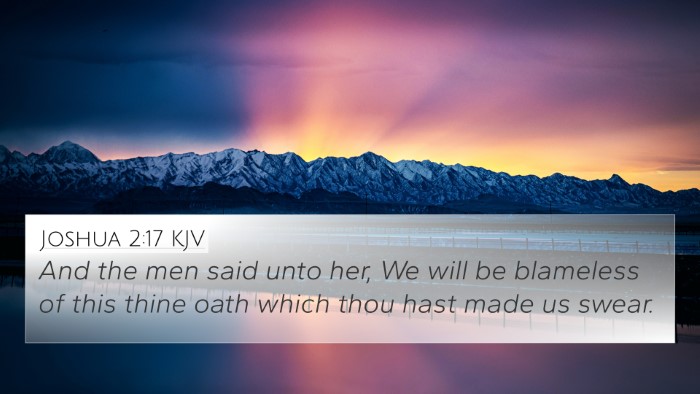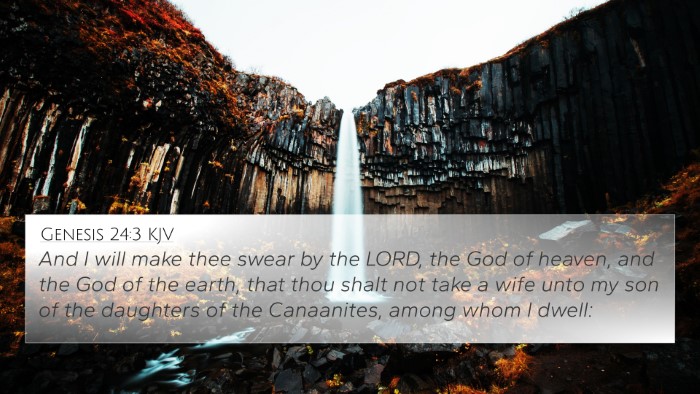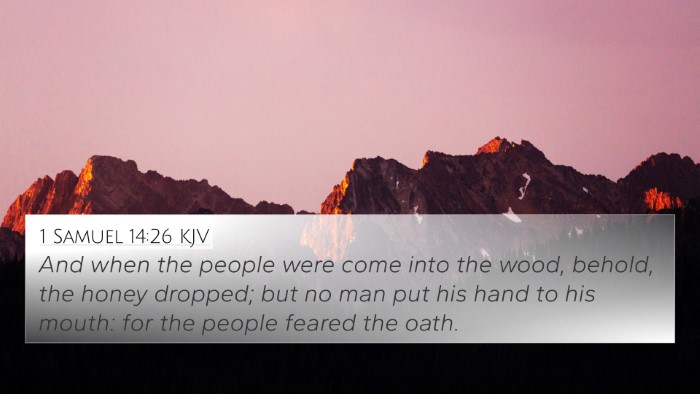Understanding Ecclesiastes 9:2
Verse Context: Ecclesiastes 9:2 states, "All things come alike to all: there is one event to the righteous, and to the wicked; to the good, and to the clean, and to the unclean; to him that sacrificeth, and to him that sacrificeth not: as is the good, so is the sinner; and he that sweareth, as he that feareth an oath."
Overview and Interpretation
This verse brings out a profound truth about the nature of life and the inevitability of fate for all individuals, regardless of their moral standing. It emphasizes that death and the uncertainties of life befall both the righteous and the wicked alike, highlighting the impartiality of life's events.
Insights from Public Domain Commentaries
-
Matthew Henry:
Henry notes that this verse reflects the common fate of humanity, emphasizing that both good and evil people ultimately face the same end. He elaborates on the theme of life’s vanity, suggesting that no one can escape death's grasp, regardless of their moral conduct.
-
Albert Barnes:
Barnes discusses the universality of death as a consequence shared by all, serving as a great equalizer among humanity. This encourages the reader to reflect on the transient nature of life and the futility of human endeavors when faced with the certainty of death.
-
Adam Clarke:
Clarke emphasizes that this verse serves to remind us of the randomness of life's circumstances and the impermanence of moral distinctions in the face of death. He posits that regardless of one's social or moral stature, death ultimately awaits everyone.
Bible Cross References
Ecclesiastes 9:2 connects with several other scriptures, creating a network of themes around mortality, morality, and the unpredictability of life. Here are some related Bible verses:
- Hebrews 9:27: "And as it is appointed unto men once to die, but after this the judgment."
- Romans 3:23: "For all have sinned, and come short of the glory of God."
- Job 2:10: "What? shall we receive good at the hand of God, and shall we not receive evil?"
- 2 Corinthians 5:10: "For we must all appear before the judgment seat of Christ; that every one may receive the things done in his body, according to that he hath done, whether it be good or bad."
- Psalm 49:10: "For he seeth that wise men die, likewise the fool and the brutish person perish, and leave their wealth to others."
- Ecclesiastes 3:19: "For that which befalleth the sons of men befalleth beasts; even one thing befalleth them: as the one dieth, so dieth the other; yea, they have all one breath; so that a man hath no preeminence above a beast; for all is vanity."
- Matthew 5:45: "That ye may be the children of your Father which is in heaven: for he maketh his sun to rise on the evil and on the good, and sendeth rain on the just and on the unjust."
Thematic Connections
The themes of mortality, justice, and the randomness of life's events are echoed throughout the Scriptures. The exploration of these themes leads to various inquiries:
- Identifying Connections: How does Ecclesiastes 9:2 relate to Hebrews 9:27 regarding the certainty of death?
- Comparative Analysis: What similarities can be drawn between the messages in Job 2:10 and Ecclesiastes 9:2?
- Inter-Biblical Dialogue: How do the teachings of Jesus in Matthew 5:45 echo the sentiments expressed in Ecclesiastes?
Tools for Cross-Referencing
Utilizing tools for biblical cross-referencing can deepen understanding and enhance Bible study. Here are some effective resources:
- Bible concordances for identifying themes and connections.
- Bible cross-reference guides for correlating verses across different books.
- Study Bibles that include cross-references for thematic exploration.
- Online Bible platforms that offer searching for similar texts and cross-references.
Conclusion
In summary, Ecclesiastes 9:2 presents a sobering reminder of the inevitable fate that unites all of humanity. It underscores the importance of understanding life's transient nature and recognizing the shared experiences that bridge the moral divides between individuals. By exploring related scripture, one gains a richer perspective on the interconnectedness of biblical themes and the overarching message of the Scriptures.



